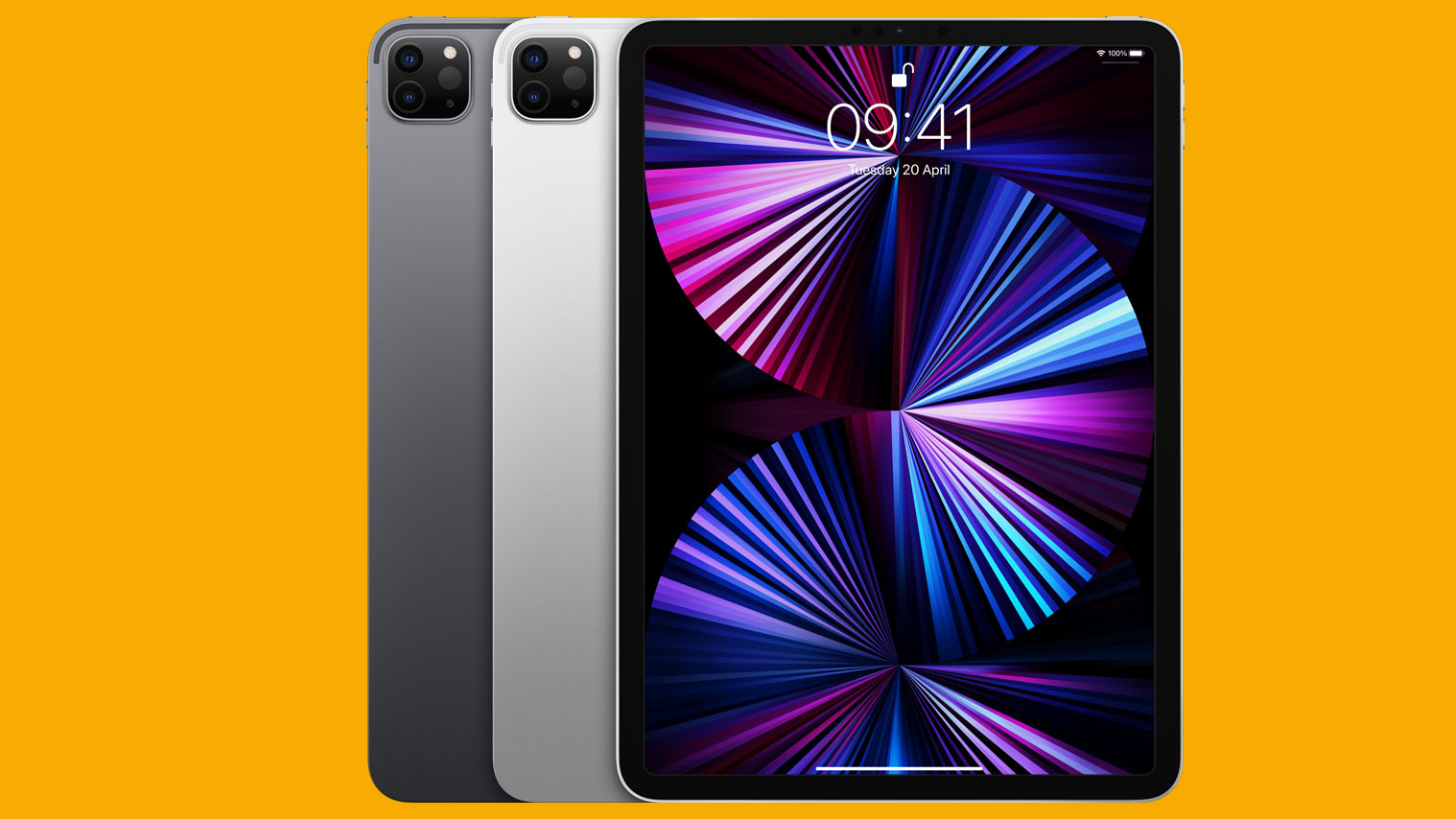New iPad Pro (2021) benchmarks leak, but power is meaningless right now
Sounds powerful, but we don't need power

Sign up for breaking news, reviews, opinion, top tech deals, and more.
You are now subscribed
Your newsletter sign-up was successful
When the new iPad Pro (2021) launched in March, the big news was that it uses Apple's M1 chipset also seen in the company's laptops, promising top processing power. While the new tablet still hasn't launched, so we can't say just how powerful it is, a leaked benchmark test gives us a hint.
As spotted by MacRumors, several entries that seem to be for the new iPad Pro have popped up on benchmark website Geekbench: five scores show results of 7270, 7282, 7282, 7262 and 7326.
- These are the best tablets
- Check out our iPad Air 4 review
- We're expecting an iPad Mini 6 soon
For some context, the current top device we've tested is the Asus ROG Phone 5 which clocked in at 'only' 3732, and the most powerful tablet in our rankings is the Samsung Galaxy Tab S7 at 3227.
So if these benchmarks are to be believed, the new iPad Pro is more than twice as powerful as its mobile competition. It's worth taking the news with a pinch of salt, though - while unlikely, it's possible the listings could have been faked.
You've got the power
An iPad is only as useful as the apps it runs, and while a 7,000+ Geekbench 5 score is impressive, that much processing power will go to waste, as there are still far too few iPad apps that require it.
Some of the most processor-intensive iPad apps, like video editor LumaFusion and various members of the Adobe Creative Suite, run swimmingly on years-old iPads. Extra power isn't going to make a lick of difference to the user experience for applications like these.
Sure, some games will benefit from powerful processors, and iPads are becoming portable gaming powerhouses - but for most titles, the only impact will be slightly shorter loading times, which isn't exactly a game-changer.
Sign up for breaking news, reviews, opinion, top tech deals, and more.
For the M1 iPad Pro to really be a necessary gadget for professional or creative types, we'll need to see current apps improved with features or functions that older iPads couldn't handle - or new apps designed that make the most of the M1.
Wouldn't that exclude the myriad people who use their older iPad Pros for work just fine, and don't feel they need an upgrade? Yes, it would - that's a toss-up Apple will need to make.
The only exception would be if Mac apps - designed for use on super-powerful laptops - became available for iPad Pro users, while their iPad-oriented counterparts remained accessible to people who didn't have the newest tech. This would reward people who owned the top tech, without ostracizing those who didn't.
There are a few question marks in the new iPad Pro's future, and while it's easy to get excited about new gadgets when they have higher numbers than older ones (7326! that's a really big number!) it's worth scrutinizing what these numbers actually mean. In the case of the iPad Pro, it doesn't mean as much as you'd hope.

Tom Bedford is a freelance contributor covering tech, entertainment and gaming. Beyond TechRadar, he has bylines on sites including GamesRadar, Digital Trends, WhattoWatch and BGR. From 2019 to 2022 he was on the TechRadar team as the staff writer and then deputy editor for the mobile team.